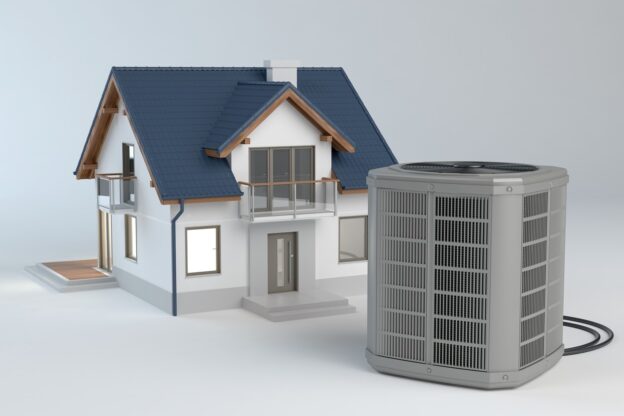Should You Choose a Mitsubishi Heat Pump For Your Bay Area HVAC Needs?
When it comes to heating and cooling your home, the choice between traditional HVAC systems like furnaces and air conditioners versus a modern Mitsubishi heat pump can be a significant decision. Each option has its pros and cons, and understanding the factors that make one option better or worse than the other can help homeowners make informed choices about their home comfort needs.
- Efficiency and Energy Savings: One of the key factors to consider is the efficiency of the heating and cooling system. Traditional furnaces and air conditioners operate separately, using fuel or electricity to generate heat or cool air. In contrast, Mitsubishi heat pumps utilize advanced technology to transfer heat between indoor and outdoor environments, providing both heating and cooling functions in one system. This dual functionality can result in higher energy efficiency and potential cost savings on utility bills, especially in moderate climates.
- Climate Considerations: The climate of the region where you live plays a crucial role in determining the suitability of HVAC systems. Traditional furnaces and air conditioners are typically more effective in areas with distinct seasons, where winters are cold and summers are hot. Heat pumps, on the other hand, are ideal for regions with milder climates, as they rely on ambient air temperature for heating and cooling. In extremely cold climates, supplemental heating may be required for heat pumps to maintain comfort levels.
- Installation and Space Requirements: The installation process and space requirements differ between traditional HVAC systems and Mitsubishi heat pumps. Furnaces and air conditioners require separate units for heating and cooling, along with ductwork for distribution. Heat pumps, particularly ductless models like those offered by Mitsubishi, eliminate the need for ductwork, making installation more straightforward and suitable for homes without existing duct systems. This can be advantageous for older homes or renovations where ductwork installation may be challenging or costly.
- Indoor Comfort and Zoning: Mitsubishi heat pumps offer advanced features such as zoning capabilities, allowing homeowners to control temperatures in different areas or zones of the home independently. This level of customization can enhance indoor comfort and energy efficiency by heating or cooling only occupied areas, reducing energy waste. Traditional HVAC systems may lack this level of flexibility unless additional zoning systems are installed, which can add to the overall cost.
- Maintenance and Longevity: Both traditional HVAC systems and Mitsubishi heat pumps require regular maintenance to ensure optimal performance and longevity. Furnaces and air conditioners typically have longer lifespans compared to heat pumps, but proper maintenance is crucial for all systems to prevent breakdowns and costly Bay Area HVAC repair. Mitsubishi heat pumps are known for their reliability and durability, but homeowners should still schedule regular inspections and servicing to prolong their lifespan.
- Cost Considerations: The initial cost of purchasing and installing HVAC systems varies between traditional options and Mitsubishi heat pumps. While traditional systems may have lower upfront costs for basic models, heat pumps can offer long-term savings on energy bills and maintenance expenses. Homeowners should consider their budget, energy efficiency goals, and long-term savings potential when deciding between these options.
Bay Area HVAC Repair and Mitsubishi Heat Pumps
In conclusion, the choice between traditional HVAC systems and Mitsubishi heat pumps depends on factors such as efficiency, climate considerations, installation requirements, indoor comfort features, maintenance needs, and cost considerations. Homeowners should evaluate their specific Bay Area heating services, climate conditions, budget constraints, and preferences for energy efficiency and indoor comfort to make an informed decision. Mitsubishi heat pumps offer innovative technology, energy-saving benefits, and customizable features that make them a compelling choice for many homeowners seeking efficient and versatile heating and cooling solutions.






